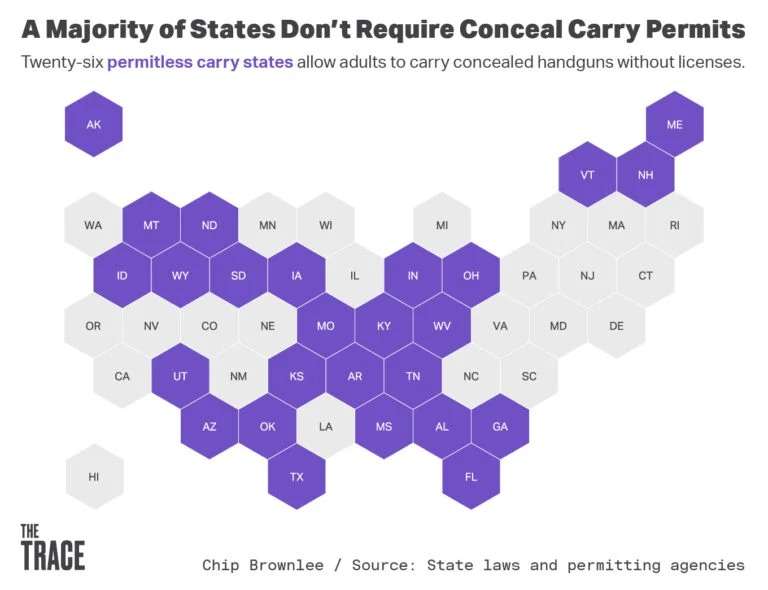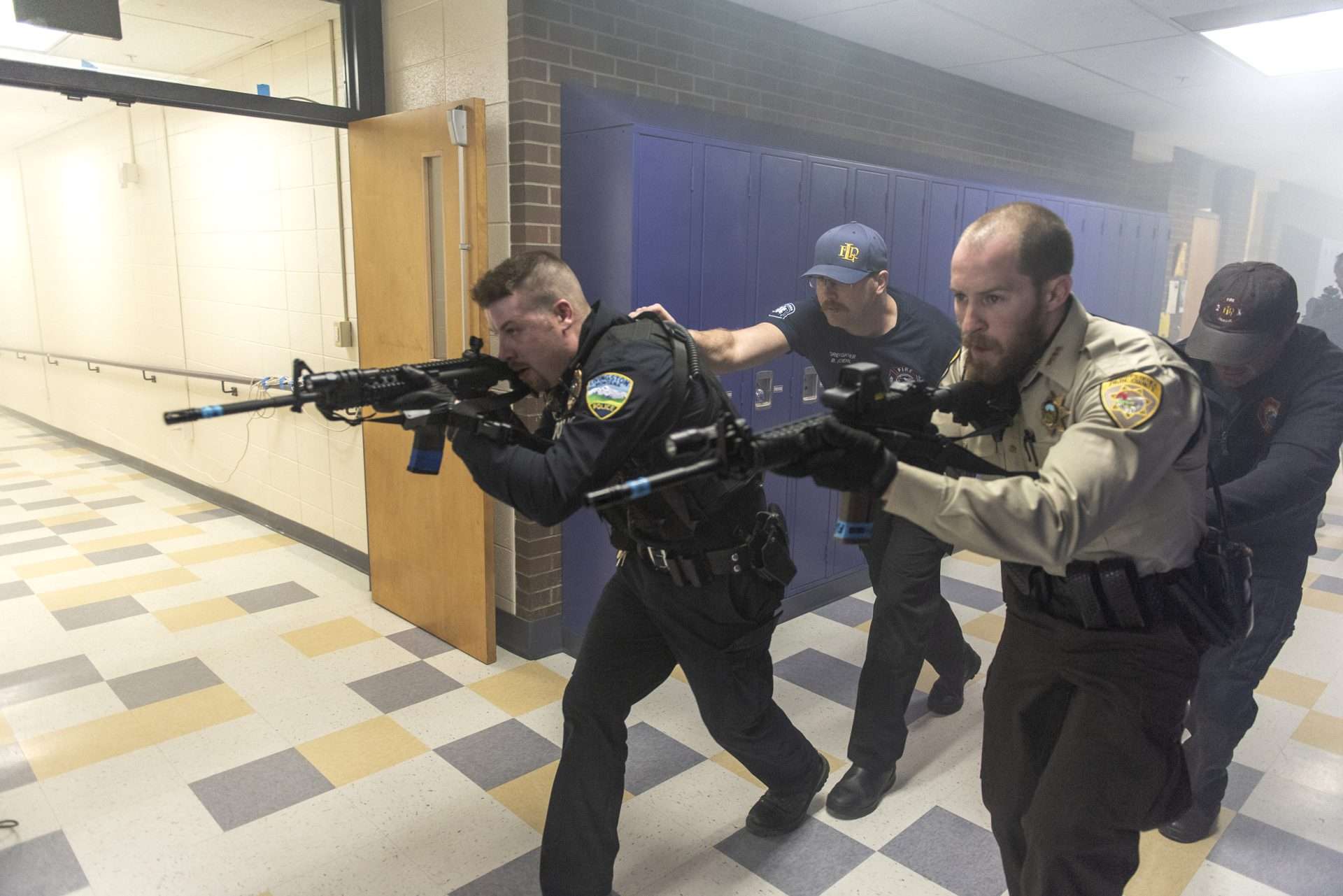With the signature of Governor DeSantis of the HB 543, carrying concealed firearms without training or a license is now legal in more than half the country. Florida, with a population of 23 million, is the third largest state and the second largest to enact carry without a permit. Texas, the second most populous state, removed those permits in 2021.
Like most carry without a permit law, Florida’s will allow people to carry concealed weapons in public spaces. Some will be prohibited from carrying a weapon, including those who are otherwise prohibited from possessing weapons under state or federal law, including for a prior felony or domestic violence conviction.
Although most states allow concealed carry without a permit, the majority of the US population lives in states that require a permit or license to carry a concealed firearm. With the addition of Florida, 142.7 million people live in carry-without-permit states, while 190.5 million reside in states that retain their licensing requirements.

In almost every state for much of the 20th century, carrying a concealed weapon required a license. Until the 1990s, some banned concealed carry altogether, but that began to change in 2003, when Alaska became the first state to pass a carry without a permit law and the second to allow concealed carry without a permit, after Vermont, which never required them. In recent years, the rate of states passing carry without a permit law has increased dramatically. Since 2021, 11 states have done so.
Carry without a permit, or constitutional carry, as advocates call it, has been a top priority for gun groups, including the National Rifle Association and Gun Owners of America. They argue that the Constitution gives Americans the right to carry a gun in public without a government-issued permit, and that allowing more people to carry concealed weapons serves to deter crime.
Last year, the Supreme Court came close to agreeing with the pro-gun groups’ position on permit requirements in its ruling in the New York State Rifle and Pistol Association. vs. Bruen, recognizing for the first time the right to carry a weapon for self-defense in public. While the Supreme Court did not rule the permit requirements entirely unconstitutional, it did rule that states like New York, which operated under an “authorized issuance” regime that gave state officials discretion to deny permits, cannot use criteria subjective to determine eligibility.
By removing the requirement for a permit before carrying a concealed weapon, Florida also removed the requirement for permit applicants to receive training prior to receiving their permits. While these will still be available to those who want them to take out in other states with reciprocal agreements, fewer people are likely to seek them out.

Gun reform groups have strongly opposed carry without a permit laws. They argue that removing permit requirements increases the chances of gun violence by allowing people to carry guns without training or background checks. Because Florida does not require universal background checks on all gun purchases, like most states with carry laws, an individual could legally purchase a gun from a private seller without a background check and still carry the gun. legally.
“Floridians are going to be less safe because of this bill,” said Samantha Barrios, Florida state director of gun reform group Giffords. “Police will not be able to identify a criminal from a person who has gone through a background check and training to carry a weapon in public. Fist fights will turn into gunfights.”















